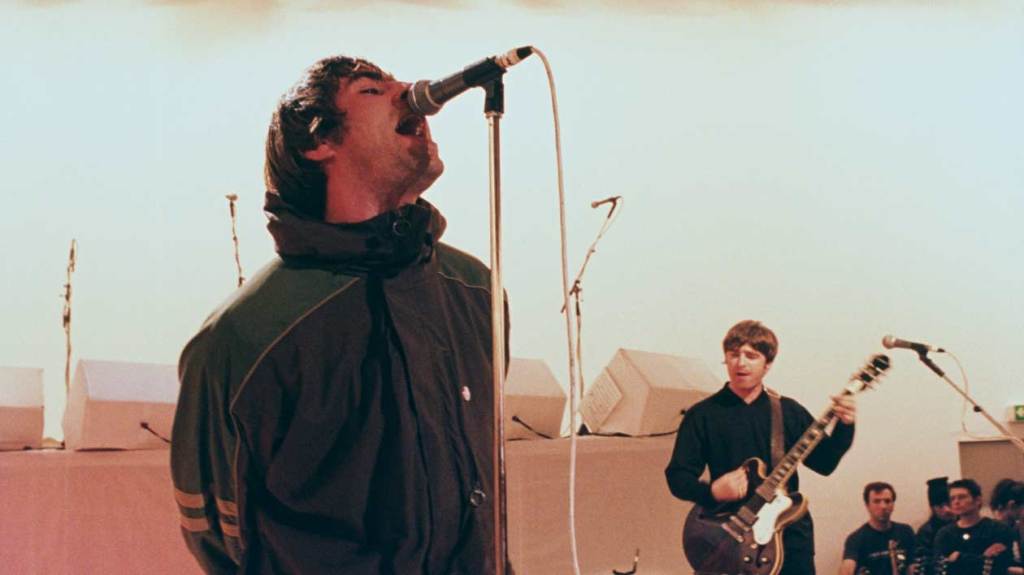Nearly three decades after reaching their cultural and commercial peak, Oasis, the Gallagher brothers â songwriter/guitarist Noel and singer Liam â are back in the headlines, set to reunite for a series of massive outdoor shows across the UK and Ireland next year.
Rumours of a reconciliation between the feuding brothers, who parted ways in 2009 after a 15-year war of words, began circulating weeks ago, igniting fervent anticipation among Oasis fans. This week, their wildest dreams came true with the announcement of a 14-date stadium tour titled "Oasis Live '25".
âThe guns have fallen silent. The stars have aligned. The great wait is over. Come see. It will not be televised,â declared the band in a statement, reigniting interest in the Britpop era icons.
Pre-sale registration for the tour opened on Tuesday, 27th August, and within 48 hours, the band had added three extra dates due to "unprecedented demand." Oasis will now play five nights at London's 90,000-capacity Wembley Stadium, five nights at Heaton Park in their hometown of Manchester (80,000 capacity), and three shows at Murrayfield Stadium, Edinburgh (67,000-capacity), along with two performances at Dublin's Croke Park (83,000-capacity) and two shows at Cardiff's Principality Stadium (74,000-capacity).
Tickets are expected to sell out quickly when they go on sale this Saturday, 31st August. With an estimated attendance of 1.3 million across the 17 shows, Oasis are poised for a live comeback on par with Taylor Swift's recent "Eras Tour" in the UK and Ireland.
Ticket prices for Oasis shows range from £65.00 to £250.00, excluding fees. Based on an average ticket price of £150.00, Billboard estimates the tour could gross the band around £200 million in ticket sales alone. Including VIP packages, merchandise, sponsorship, performance rights and future filming revenues, the total earnings are likely to be at least double that amount, according to talent agent Jonathan Shalit.
Economic Boost:
âItâs a once in a generation moment for a lot of music fans to experience an iconic rock band that has a very special place in many peopleâs hearts," says Tom Kiehl, chief executive of UK Music. "Itâs also going to be a really big economic moment for the country and music industry.â
In 2023, 19.2 million music tourists, defined by UK Music as individuals travelling outside their hometown or city for a gig or visiting from overseas, attended live concerts and festivals in the UK, generating £8 billion for the country's economy.
Susannah Streeter, head of money and markets at Hargreaves Lansdown, believes the frenzy surrounding Oasis' return will create significant revenue for hotels, taxis, bars, restaurants, and pubs in the cities hosting the band's performances, "bringing a significant boost to the UK economy."
The UK leg of Swift's "Eras Tour" was estimated to have generated £1 billion for the UK economy, according to Barclays bank analysis. While Oasis fans might not reach those heights, they are unlikely to hold back from spending to celebrate the brothers' reunion.
In Manchester, the band's five shows are expected to generate over £15 million for the local economy, according to Sacha Lord, the city's nighttime economy advisor and founder of Parklife music festival.
A Rising Tide:
Beyond the financial gains, live industry executives hope the enthusiasm for Oasis will bolster support for the struggling grassroots music sector in the UK, where the band emerged in the early 1990s.
According to the Music Venue Trust (MVT), nearly 150 grassroots venues closed or ceased staging live music in the UK in 2023. Of the 15 venues Oasis played on their first tour, nine are reported to have closed or no longer host gigs.
To stem the tide of closures, live industry leaders are advocating for the British government to reduce sales tax (VAT) on tickets for all grassroots music shows from 20% to the European average of 5-7%. This would "mean more shows and festivals, thriving venues of all sizes and [help] the next world class superstars off the UK talent production line," says Jon Collins, CEO of LIVE.
âThe Oasis reunion is a huge moment not just for fans, but for the live music industry too,â says Andrew Foggin, global head of music at ticketing company DICE. âThese high profile, beloved artists serve as a catalyst to get people out more. They donât just draw crowds to massive stadium events, but they also remind people what makes live music so special, creating benefits for the rest of the industry.â
A Digital Resurgence:
The Gallagher brothers stand to reap a sizable royalty windfall even before the first ticket is sold. Following Tuesdayâs reunion announcement, Oasisâ Spotify streams spiked 690% globally, with some lesser-known songs experiencing even larger increases. The band currently boasts over 24 million monthly listeners on Spotify, with their most popular song, âWonderwallâ, surpassing 2 billion streams.
On TikTok, Oasis has seen a 101% increase in video views, creations, and user engagement over the past seven days.
âOasis has always been popular on TikTok, and the news of the reunion has taken it to another level,â says Adam Read, TikTokâs UK and Ireland music programs manager.
Looking Ahead:
The only live dates announced so far are the 17 shows in the UK and Ireland, but the band's designation of their 2025 outing as a world tour suggests international dates, including potential US shows, are likely to follow. Additional UK shows could be announced if the initial ticket allocation sells out quickly.
"Oasis were the last big band of the pre-digital era," says Kiehl. âThereâs a legendary status attached to them and thereâs a whole new generation of Oasis fans who have never seen them perform live, as well as all of their original fans from the Nineties, so their return is going to be a really big moment for the music industry and live music.â
Article
Entertainment

Oasis Reunion Tour: Britpop Giants Set to Inject Millions into UK Economy

